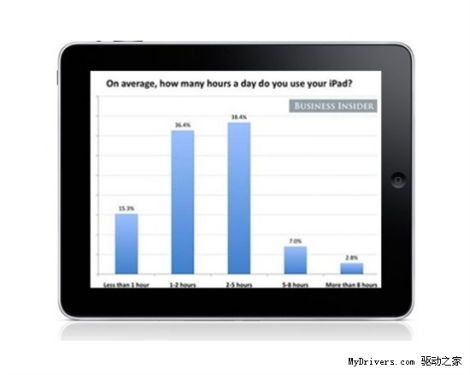Guangzhou Etmy Technology Co., Ltd. , https://www.gzdigitaltalkie.com Market research company HIS iSuppli released a report a few days ago, saying that with the continuous expansion of the tablet computer market, the consumption of NAND flash memory chips is increasing rapidly, and Apple products have "contributed a lot".
Market research company HIS iSuppli released a report a few days ago, saying that with the continuous expansion of the tablet computer market, the consumption of NAND flash memory chips is increasing rapidly, and Apple products have "contributed a lot".
The report said that this year's NAND chip consumption is expected to reach 2.3 billion GB (2.3 EB), an increase of 382.8% compared to 476.8 million GB (476.8 PB) last year.
Judging from the expected flash chip consumption of various products this year, tablet computers will account for 11.8% of this, which is a 4.3% increase from the same period of last year. By 2014, the proportion will increase to 16%. According to the monitoring data provided by iSuppli, there is no sign of a decline in flash memory shipments for tablet PCs, which will reach 12.3 EB by 2014.
HIS iSuppli said that NAND flash memory will be more suitable for entertainment tablets like the iPad, although the computing-oriented Windows/Intel tablet will also occupy a place in the future, but the latter's high demand for flash memory means higher prices, which will Impede consumer purchases. In addition tablet makers are also facing downward pressure on prices, which may lead to a decrease in the product's flash memory capacity.
Dee Nguyen, an analyst in the storage department, said: “The increase in NAND flash consumption in tablet computers is likely to come from Apple’s iPad and several Android tablet models that are on the market this year. Such tablets are more inclined to provide an entertainment experience than a full-scale one. PC computing experience, so the internal storage capacity requirements are not high.
According to data provided by iSuppli, the non-iPad tablet uses an average flash memory capacity of 27.1 GB, while the iPad uses an average of 41.5 GB, and the current price per GB of flash memory chips is 1.20 US dollars.
In addition, although SSDs are still a lot more expensive than traditional HDDs, due to their advantages in performance and durability, they are gradually entering the market of smart phones and ultra-portable notebooks, which will continue to increase the consumption of flash memory chips.
In addition, with the new release of Windows/Intel tablets, the tablet will usher in a new wave of sales growth. Lenovo, Samsung and Hewlett-Packard are also expected to introduce new products for their own tablet, which will be equipped with SSDs with capacities of 32-64GB.